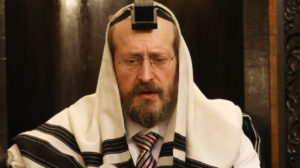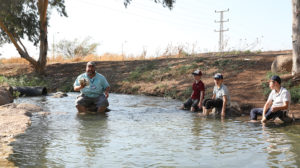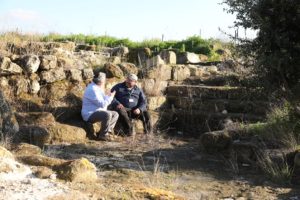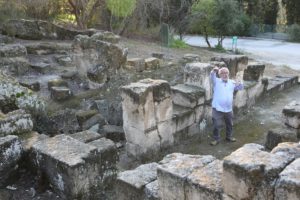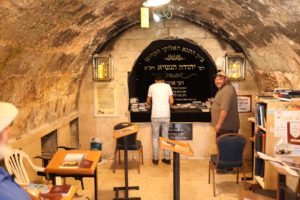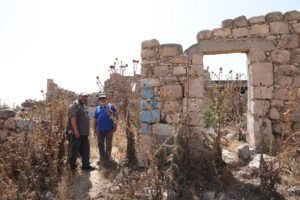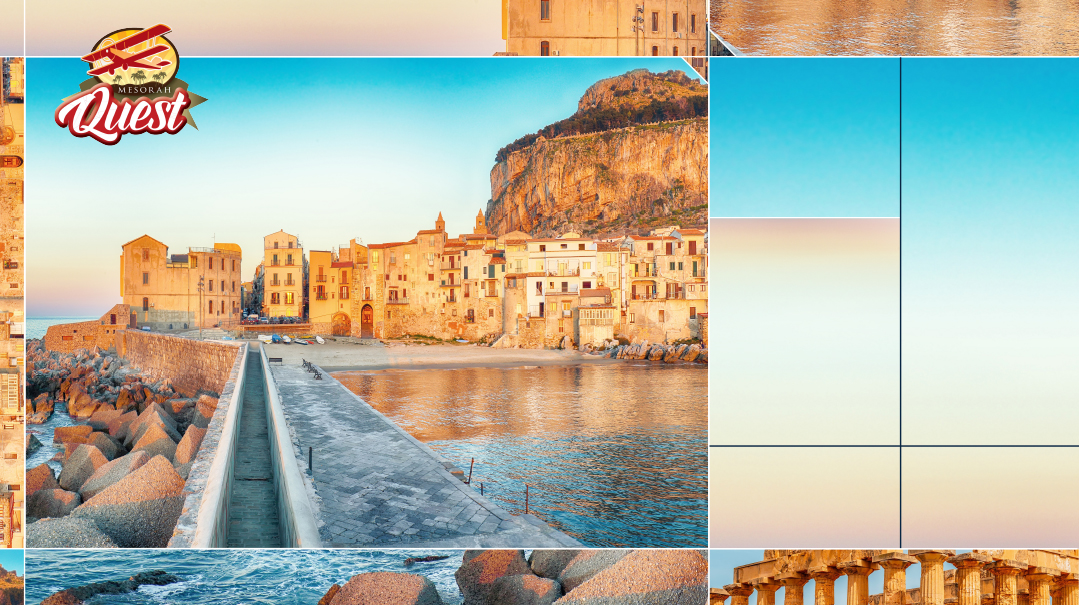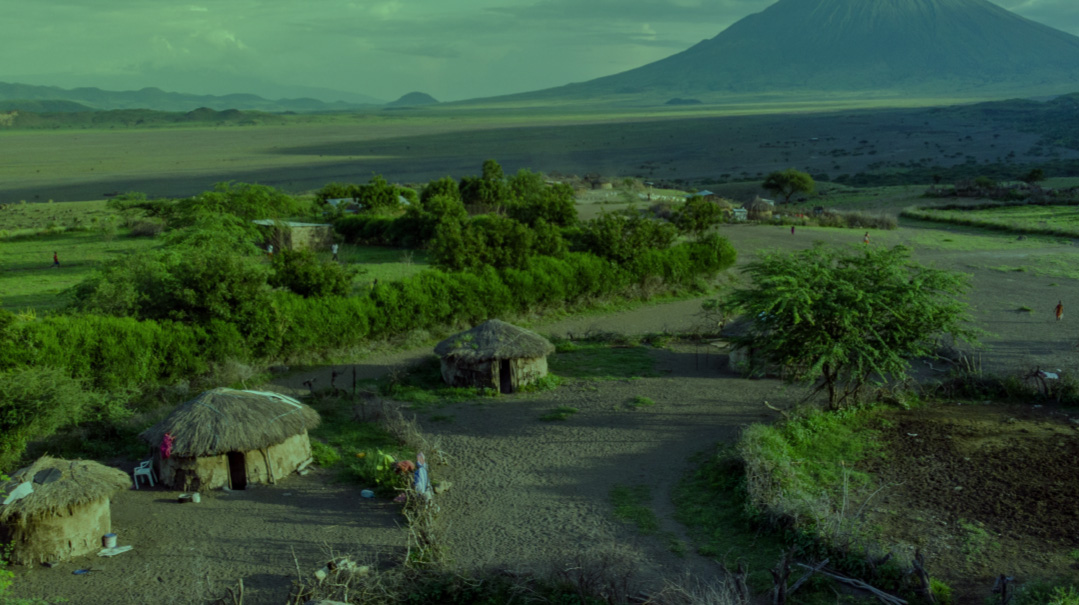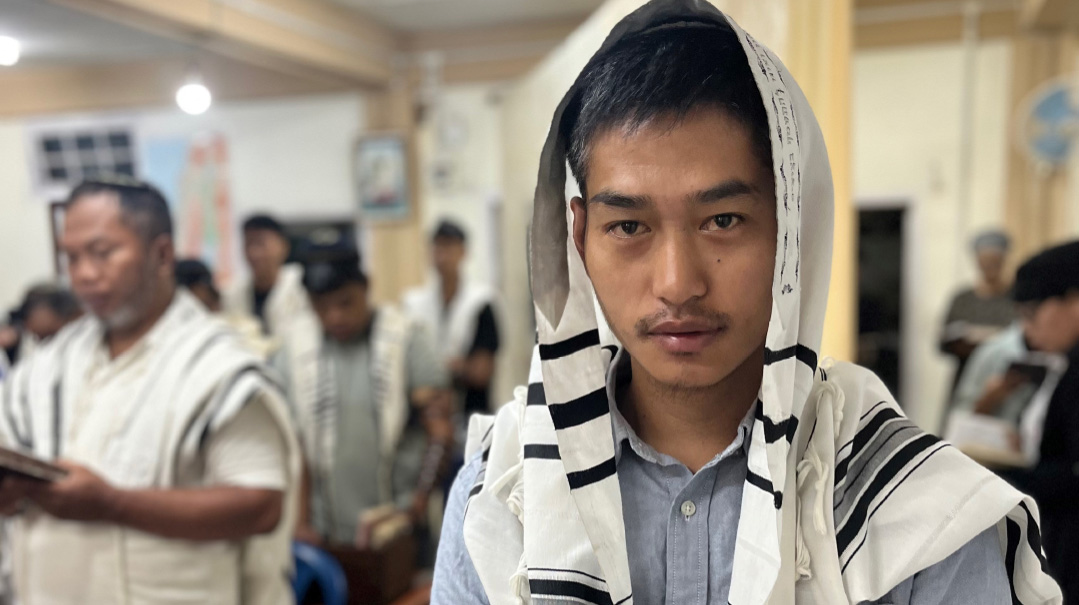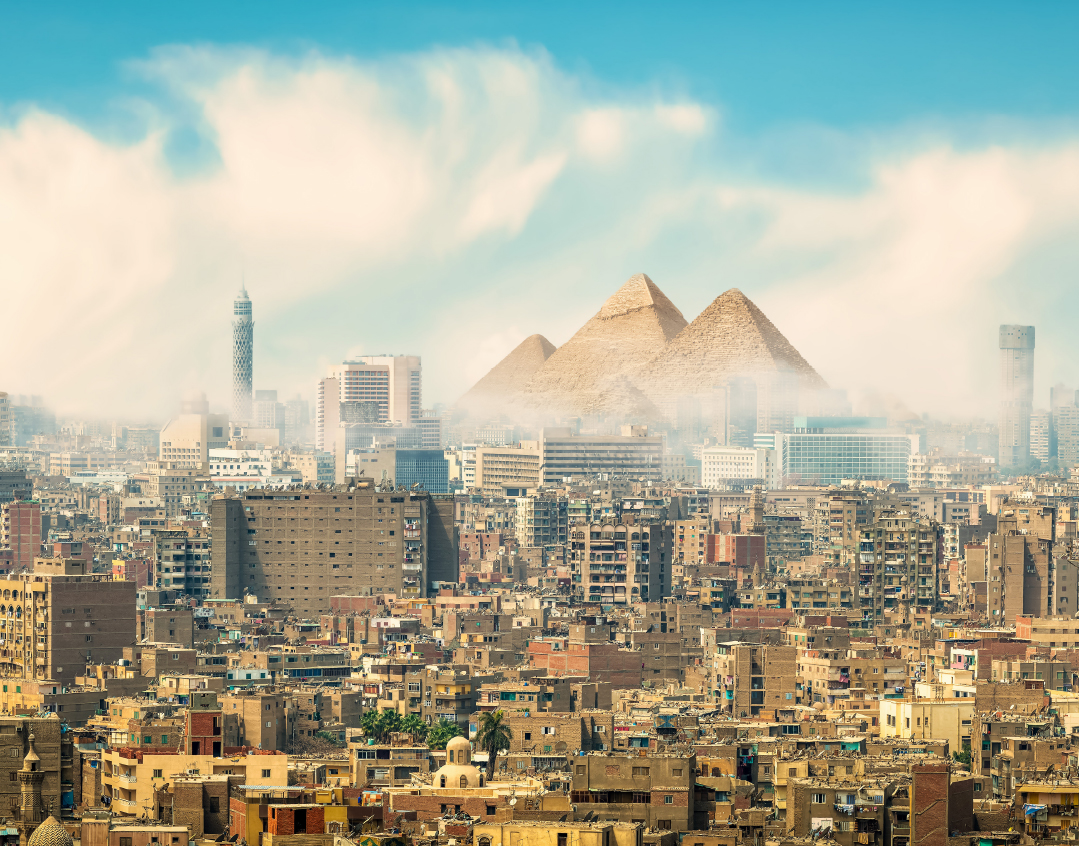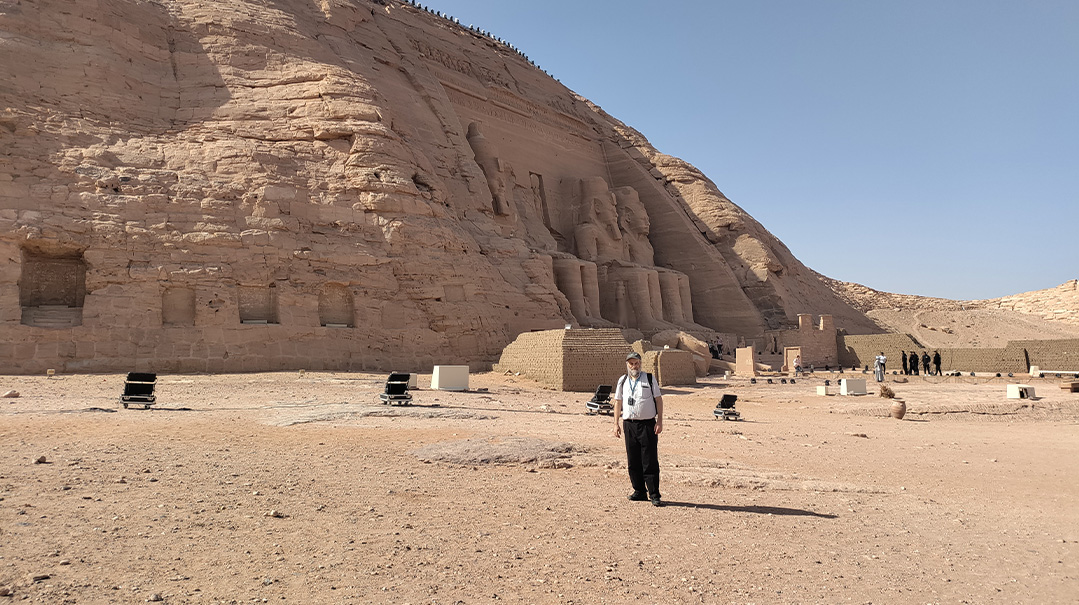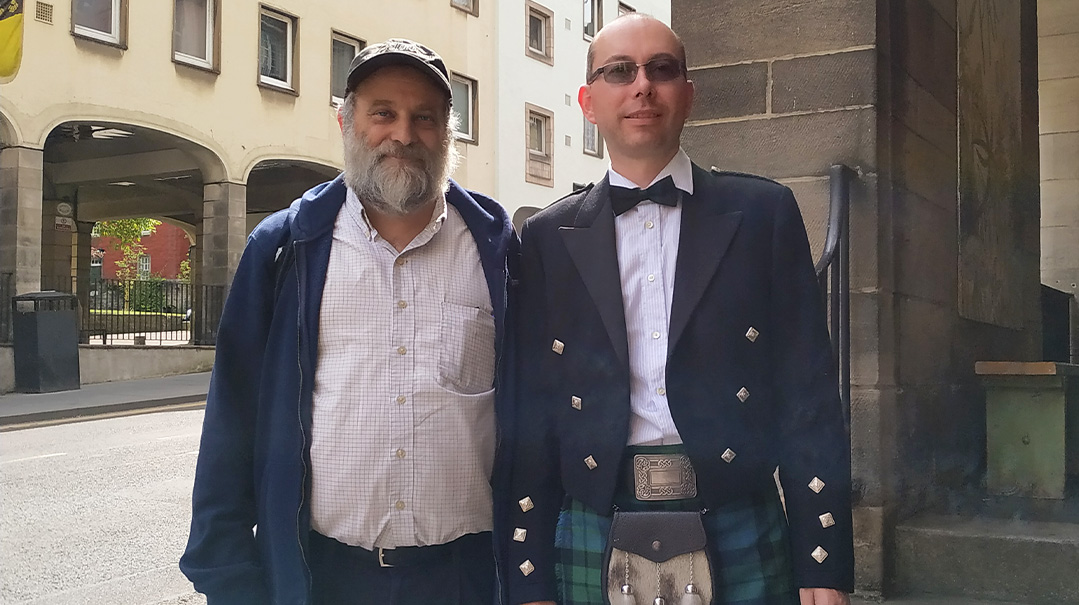50 Miles From ISIS
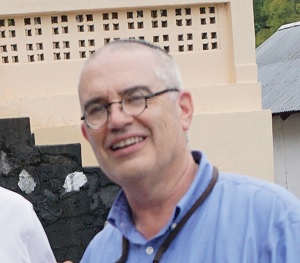
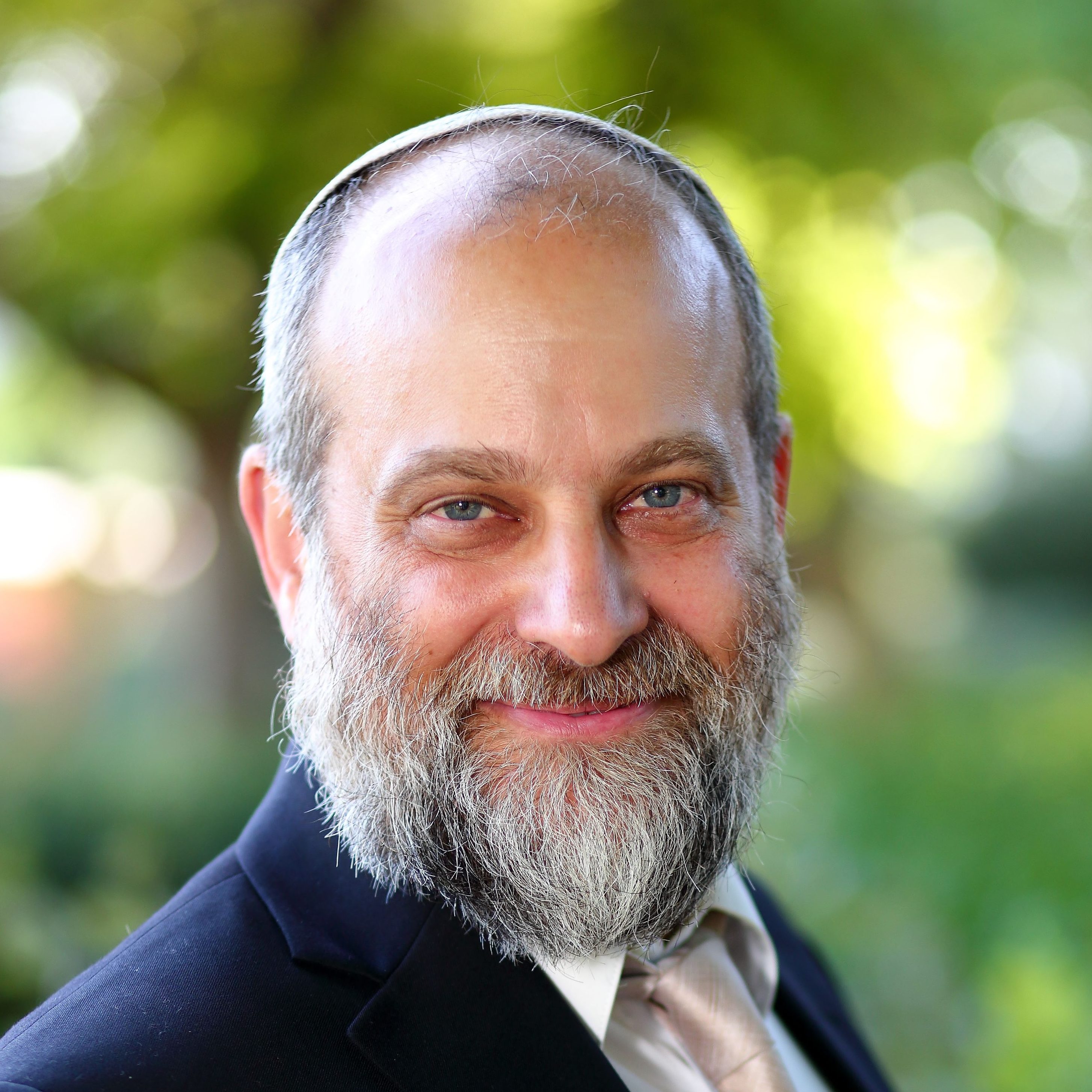
Of course we got raised eyebrows as we boarded a plane to Iraq, yet Kurdistan proved to be a welcoming, friendly place where our yarmulkes elicited comments such as “We love Jews.”
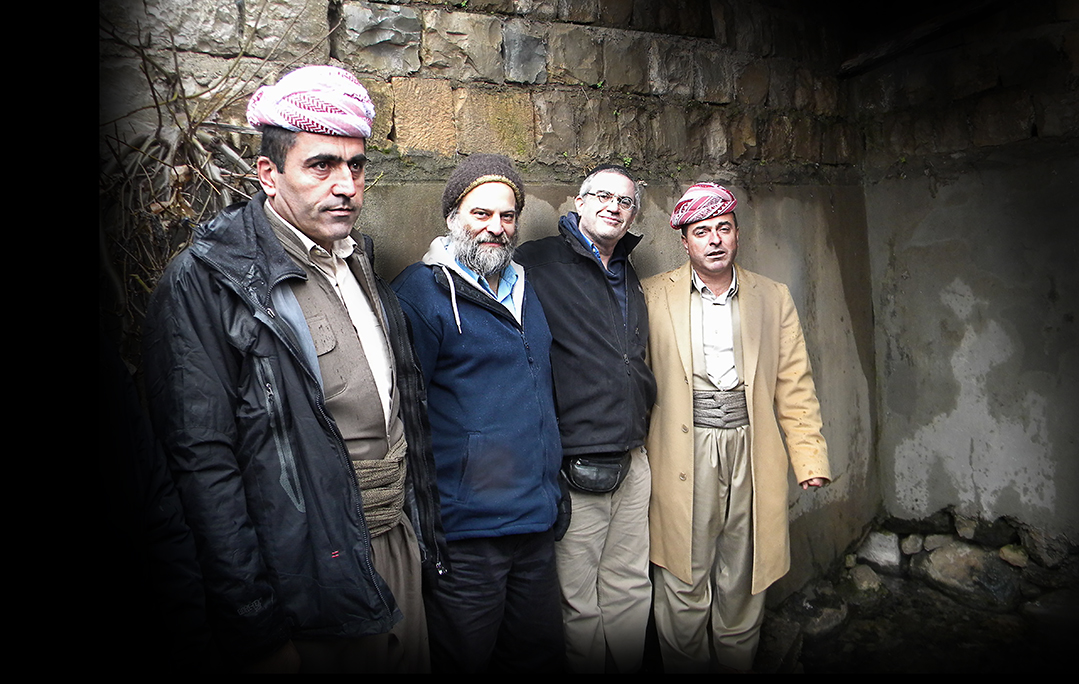
W
e’ve searched for Jews and examined remnants of communities all over the globe — but to travel to Iraq? With some of its territory overrun by ISIS and in the throes of civil bloodbaths, that was one place we never imagined we’d get to, at least in this decade. Yet several months ago when we heard that the government of Kurdistan — a semiautonomous region in northern Iraq — had appointed a Jewish affairs representative, we just had to go and see for ourselves. We decided to be his guests.
For those of us living in the West, Iraq conjures images of perpetual war and incessant terror attacks. There was Saddam Hussein, the Iraq-Iran war, the US-led invasion of Iraq, as well as the subsequent power vacuum and the lightning-fast emergence of the deadly ISIS. Yet our back-channel investigations and research with various security organizations told us that safety in Kurdistan — even wearing our kippot publicly — was not a concern despite it being in Iraq.
Well, even if walking the Kurdish streets was safe, we still had to decide to either fly via Jordan and over ISIS-controlled areas or via Turkey. Despite the decades-long tensions between Turkey and Kurdistan — the Kurdistan Workers Party or PKK, a terrorist organization engaged in an ongoing militant struggle against the Turkish government for an independent Kurdistan on Turkish soil and last year alone Turkey killed more than 3,000 Kurds — Turkish Air still flies there frequently, and so we set off from Tel Aviv to Istanbul.
Because our time on the ground was quite limited, we quickly realized in planning our itinerary that we’d need a local expert to facilitate our meeting with relevant people and to get from place to place efficiently during a very short visit. We discovered that a local leading authority on Kurdish Jewry is a woman named Judit Neurink, a Dutch journalist and writer who has lived in Iraqi Kurdistan for the past eight years, became intrigued with Kurdish Jewish history and even wrote a novel about the Jewish heritage Kurdistan. It turns out that her services were indispensable in helping us hit the ground running for the short time we were in this country of conflicts.
Although there are approximately 30 million Kurds in the Middle East, forming minority populations in Turkey, Iran, Iraq, and Syria, there has never been a modern independent Kurdish state. While the vast majority of Kurds are Muslim, there are also Christians and Jews along with several other minorities, such as Zoroastrians, Yazidis, Bahais, and other small groups. Kurdistan is a tough neighborhood, and, as the locals told us, “at least you have the Mediterranean on one of your borders.” What they meant was that both Israel and Iraqi Kurdistan are surrounded by hostile countries, but at least the sea is not an aggressive neighbor, while Iraqi Kurdistan is bordered by the anti-Kurdish Turkey, Syria, Iraq, ISIS, and Iran.
Battle-Scarred Escorts
We entered Iraq via Istanbul through the Kurdistan provincial capital of Erbil, a modern, even affluent-looking city of over a million people. Here you could easily forget that ISIS is only tens of kilometers away, and that Baghdad and other Iraqi cities faced with perpetual instability are not too far south. But despite the seeming tranquility, there were regular reminders that we were in a multinational war zone.
We were met at the airport by Y, who would be our armed escort most of the time we were in Kurdistan. As he led us to his armored Mercedes 4x4, we noticed the revolver in his traditional waistband sash and an automatic weapon on the floor of the vehicle. At the end of our trip, before bidding us farewell, he casually mentioned that half his intestines were gone, showing us where the bullet had entered and exited his abdomen while fighting in Iraq under Saddam.
We were joined by our governmental host (thanks to Judit’s connections), Sherzad Omer Mamsani, who extended his left hand in greeting because the lower part of his right arm is artificial. He later told us that years earlier a bomb had been planted at his door by Islamist militants due to his involvement in improving Israel-Kurdish relations, and when he opened the door, his arm was blown off. Standing in the chilly air, he explained to us that he gets cold easily, owing to the thousand pieces of shrapnel still lodged in his body. Driving around Erbil, the street signs that pointed toward Baghdad and Mosul (the ISIS capital) were an ever-present reminder of where we were, so we were really quite grateful for this official entourage.
As we drove around town, Erbil seemed safe, stable, and pleasant, but we couldn’t ignore the undercurrent of war and suffering just over the border — this region of six million people is currently hosting about two million foreign and internally displaced refugees. One evening while shopping for souvenirs, we struck up a conversation with a man who spoke excellent English and explained to us how he had fled the fighting in Damascus at the very beginning and had already established himself in Erbil. The store’s cashier, on the other hand, had arrived only four months ago from a Syrian town that had been essentially destroyed by ISIS. Although the locals take pride in caring for these refugees, two million of them is enough to rock the calm even of their Kurdish hosts.
Israeli tourists are rare, and even though we entered on our US passports, we were treated as honored Israeli guests. We were astonished when two security guards in the airport who noticed our kippot spontaneously gave us a thumbs-up and said “we love Israelis.”
Apparently the Ministry of Religion saw us as an important “delegation,” and so we were immediately whisked to the mourning tent of Erbil’s mayor to pay our respects. His mother had passed away three days earlier from cancer after advanced treatment in Amman, Jordan. He comes from a large, powerful family and the tent was massive, as was the private militia guarding the area. Yet we were waved through and were greeted by the mayor and his brother, a general and head of antiterrorism in the country, as we entered the tent and sat with them. Spanning the length of the tent was a long table laden with meat, rice, and pitas, refreshments for the hundreds of people milling around while we sat in earnest discussion with the mayor, considered to be the one of the most powerful men in the country — about both his personal loss and about regional politics. We were pleasantly surprised by his friendly demeanor and the sincere respect and friendship he expressed for Israel. This was a theme that repeated itself many times throughout our visit.
The 100-Year Nap
Today Erbil is a modern city, but it was once the center of the ancient Assyrian kingdom of Adiabene, best known to the Jews because at one point its royal family converted to Judaism. Queen Helena, known as Heleni Hamalkah in Jewish sources, converted in the 1st century CE, and together with her sons moved to Jerusalem, built palaces at the northern part of the City of David, and made significant contributions to the Beis Hamikdash before it was overrun by the Romans.
Owing to the 2,500-year-old Jewish connection in Iraq, we were not surprised when a local told us that we could find the tomb of Ezra Hasofer in Erbil. Now, we know that some say Ezra’s tomb is in Basra, Iraq, and there is also a tradition that he was buried in Tadif in northern Syria. But Erbil? The least we could do was check it out.
So we headed out to the site, a small Muslim cemetery, only to find the entrance locked. Conveniently, the phone number of the caretaker was scribbled on the gate. Our translator called her, and after waiting 20 minutes in the rain, she finally appeared and let us in. She explained that her family has been taking care of this site for seven generations and admitted that it’s not actually Ezra’s grave, but rather “where he slept.”
She then proceeded to tell us a legend about Ezra falling asleep on this site for 100 years. We are not familiar with any such midrash, but who knows if there really was a connection between Ezra and this particular site? After all, he did live in this part of the world. And so, in deference to custom, we took our shoes off as requested and went down to the “grave” — located in a mausoleum built in the 1600s by a local Muslim — to the tapping boom-boom of the caretaker’s pulsating traditional drum.
Boon and Bust
Around five years ago the autonomous region of Kurdistan saw an economic boon that attracted foreign investments as well as encouraged the return of Kurdish expatriates. Erbil became the fastest-growing city in Iraq with the country’s tallest building and a new airport. And although the bubble burst soon after, remnants of those years can still be seen in some of the huge construction starts that were never finished, as well as in the many new cars and other signs of wealth on the streets.
While the region is now going through tough economic times and is in the midst of a standoff with the central Baghdad government over oil revenue owed to them, Kurdistan as part of Iraq still attracts European do-gooders. One NGO we heard about is hoping to bring peace through soccer. This particular NGO spent significant funds to build new soccer fields just outside of many small towns we passed (the government allowed them land outside the cities). But it was obvious that these fields were rarely used. Still, such is the way of many European NGO projects in Iraq as well as those directed to the Palestinians — the doers feel good but usually little is accomplished on the ground.
The emerging ethnic pride amongst the Kurds, together with the constant neighboring threat of ISIS and radical Islam, have created another phenomenon — the reemergence of people with Jewish blood who for years kept their lineage secret.
After the establishment of the State of Israel in 1948, it became open season in Iraq for anti-Jewish attacks, and most of the local Jews fled to Israel or other countries. Those who stayed married Muslims and either converted to Islam or went underground. And because radical Islam preached that Jews were the evil enemy, hardly anyone in Kurdistan dared mention their own Jewish bloodline.
Until ISIS came on the scene. Sounds ironic, but because of the Caliphate’s perpetration of the worst atrocities, many Kurds turned their backs on radical while at the same time, the Kurdish authorities decided to ensure that religious minorities would feel safe and welcome in the region. This last May, the Kurdistan parliament gave all these minorities — including the Jews — a representative in the Ministry of Religion.
One Big Family
One of our objectives was to learn about Jewish Kurdistan and to see if we could find any remnants — either alive or in stone — of these communities. We were quite surprised that in all the towns and villages we visited, we didn’t find one Jewish cemetery – we assume they were destroyed during the years of Saddam. Yet Sherzad, the recently appointed Jewish affairs representative, claimed that there were hundreds of families with Jewish roots still living secretly in Kurdistan.
They’re called “Benjews,” but don’t let your imagination conjure up images of secret groups of Anusim practicing a familiar Judaism in secret. These Benjews have one thing in common — Jewish blood — and it might have come from a mother, father, or grandparent; but many of them also believe in Islam and go to the mosque. They’ve all either married Muslims, converted, or hid their Judaism out of fear of reprisals from the Arab Iraqis. Yet they are proud of their roots and today they no longer feel a need to hide their background.
Maybe that has to do with the Jews’ continuous and significant presence in the region, ever since Nevuchadnetzar exiled the Jews to Bavel in the sixth century BCE. The ancient Jewish community of Kurdistan even has a tradition that they are from the dispersed Ten Tribes. As opposed to other communities in the wider Iraqi region, The Kurdish Jews lived in isolated small villages and were not learned in the Torah. Spanish-Jewish poet Yehudah Alharizi visited Kurdistan in the year 1230 and described synagogues “full of boors and cantors who made mistakes.” We too met people in the area who were illiterate, although it’s harder to imagine in the year 2016.
While relations between the Jews and their non-Jewish neighbors had its ups and downs over the centuries, they took a precipitous turn for the worse in the 1940s when Arab Iraqi violence climaxed in a farhud, or pogrom, in Baghdad in 1941. Close to 200 Jews were killed and over 900 houses destroyed. After that, the vast majority of Jews left Iraq, most moving to Israel. But for the few who stayed behind, their connection to Judaism dissipated.
In the 1990s during the Iraqi-Kurdish civil war, life became even more difficult in northern Iraq, and some of these intermarried Jews or their descendants availed themselves of the Law of Return and moved to Israel.
While still in Israel preparing for our trip, we met one of the families who came with this small wave of olim. The head of the household, a young father in his 30s, had been a child when the family made aliyah, and today is integrated in Israeli society. But his parents, who live with them, never acclimated and today still don’t speak Hebrew, and are in fact illiterate. When we visited the family, the parents as well as the father’s brother were watching Kurdish TV, and the son had to translate for us as we tried to glean information.
While this man’s parents have stuck it out so far, his wife’s parents didn’t. They simply couldn’t make it in Israel and returned to Kurdistan with the rest of her siblings. And that’s how we wound up in a hotel restaurant in Dohuk, about 50 kilometers from the Turkish border, carrying on a conversation in Hebrew with this man’s father- in-law and brother-in-law. They explained how the older generation had been sustenance farmers living in tiny villages, often illiterate. Thus, the transition to Israel was extremely difficult for them.
Except for the daughter he left in Israel, the man returned to Kurdistan with the rest of his children, where they married Moslems. The son we talked to speaks fluent Hebrew and we were able to have a fascinating conversation about this phenomenon of “Benjew” — mixed-married Jews or their descendants who today are not only not ashamed, but actually proud, of their Jewish ancestry. The father and son we spoke to insisted that they’re Jewish, but saw no contradiction in being Muslim at the same time. “When we’ll have independence, b’ezrat Hashem, I will go both to a shul and a mosque,” said the son. “I wouldn’t want to miss anything holy.”
In the Open
Ever-enthusiastic Sherzad arranged an evening get-together with several Benjew families. The host, a lawyer, and his daughters — an architect, a medical student, and a civil engineering student — might be intrigued by their history, but it has little bearing on their life. One daughter is engaged to a Finnish Muslim ex-pat Kurd, and after their wedding they will be moving to Finland.
Our host also invited his cousin, who’s married to a Muslim woman. This Muslim wife related how her own mother actually knew some Hebrew because she was the village Shabbos goy.
But we hit a home run in our search for Jews among the Benjews when the door opened and in walked Sarah, the elder matriarch of another family, dressed in typical local Muslim garb and accompanied by her doctor son, her daughter and Muslim son-in-law, and their children. She told us that her mother and her maternal grandmother were proud Jews, and that her mother, on her deathbed, requested from her to recite Kaddish D’Rabbanan. She told us that she never did because they never had ten Jewish men.
But she does preserve some of her mother’s traditions. She told us that her mother had always taught her that 20 minutes before sunset on Friday she should light candles. And then to our utter amazement, she waved her hands around three times, covered her eyes, and recited the brachah. She also knew “al netilat yadayim” and still doesn’t eat pita made with yeast on Pesach. She also described how she takes challah with the brachah, and how her husband isn’t bothered by the cold food he gets on Shabbat. And when we asked if she knew the Shema, she recited it flawlessly, declaring that she says it three times a day. Her son also recited the Shema for us, and her daughter asked us to give Hebrew names to her children.
Now that it’s safe to admit a Jewish connection in Kurdistan, several high ranking government officials have admitted to being Benjews, and according to government statistics there’s been a reduction of 40% in mosque attendance since ISIS appeared. This “we’re all against them” environment has made it easier for the Benjews to finally express their heritage. Still, no one is shouting their Jewish roots but they are no longer hiding their heritage either.
Sherzad, for his part, has a multipronged program. He is responsible for relations with the hundreds of thousands of Kurds living in Israel and has visited Israel several times. He even talks about building a Jewish museum and a synagogue, but also realizes how limited in knowledge the local people are. Still, Sherzad has taken what could have been a low-level government posting and has turned it into an international position. His devotion and energy are amazing in the face of a community that remembers next to nothing about being Jewish.
Grave Decision
While we were traveling, Sherzad was contacted by another prominent Benjew, who is well-connected through the old boys club of the senior leaders of Peshmerga, Kurdistan’s military force. He explained that “all VIPs” (i.e., Mishpacha writers) visit the grave of Mullah Mustafa Barzani (1903-1979), father of current president Massoud and founder of the Kurdish Democratic Party, who played a major role in the Kurdish struggle. He was a sheikh and a tribal leader, and his tomb is visited by over 100,000 people a year. It would be an viewed as an affront if we didn’t make the three hour detour to Barzan, his hometown where he was reinterred in 1993.
So we went. As the road climbed into the mountains and the snow deepened, we were waved through several military checkpoints. Upon arrival at the visitor center, we were greeted by a distinguished-looking group of men who were waiting for us in the cold drizzle. We shook hands all around and one man stood out in a gleaming light-brown wool overcoat, wearing the baggy pants of local tradition, turban, and a beautifully tied wide sash that traditionally holds a dagger. This was Sheikh Barzani, the local ruler and our host, and first cousin to the president of Kurdistan.
We removed our shoes and were directed toward a carpeted sitting room where each of us sat back in a large formal chair and got ready to listen. The sheikh, though his interpreter — an Iranian-born Iraqi Kurd who spoke excellent English and holds a degree in computer science — spoke to us like brothers. He talked about the importance of Mustafa Barzani and the Kurdish people’s struggle for freedom and democracy. He emphasized how the Jews had lived in harmony with their Kurdish Muslim neighbors for centuries.
He related an incident in which some Jews were being harassed by Muslims in one of the villages and how Mustafa Barzani adjudicated it. Not only did he tell the Muslim villagers not to bother the Jews, but actually invited the Jews to Barzan to live under his protection. He talked about the similar problems Israel and Kurdistan face and spoke about how the Kurds want peace and harmony with their neighbors, but don’t see it happening soon. It was an impressive and moving talk. We asked some questions and ended the formal part by giving the sheikh a blessing in Hebrew. He seemed quite moved.
Back out in the wet snow as the drizzle continued, we proceeded in a convoy led by a police car for the five-minute drive to the grave, which sits just outside a larger Muslim cemetery. The sheikh then showed us the genocide museum, which memorializes the 8,000 Barzanis whom Saddam Hussein killed in cold blood — many of whom were put in mass graves or not buried at all. The museum director referred to it as “our Yad Vashem.”
We never expected to be in this mountainous village that was far from our planned itinerary, but it turns out that Barzan — mountainous, remote, economically insignificant, yet a politically important town in northern Iraq — was known to have had a sizable Jewish and Christian population. Sheikh Barzani showed us that across the street from his home was an empty lot with the remnants of stone walls — the remnants of a shul. When the town was nearly obliterated by Saddam Hussein, who took out his anger on this center of Kurdish pride, the synagogue too was a casualty of his wrath.
We were surprised by the tremendous honor accorded us by the sheikh, who was proud to show us the “Jewish bath.” For a few moments we were thrilled that we would be able to see an ancient mikveh, but it turns out this was actually a natural Muslim spring used by the Jews for water and bathing in pre-plumbing days.
Friends and Allies?
Back in Erbil, an incident we had with our new friends exemplifies what our trip taught us. Our hosts took us to one of the fancy restaurants in Erbil, where we were given free rein in the kitchen in order to oversee the baking of fresh laffa, the cutting of a fresh vegetable salad, and the squeezing of a fresh fruit drink. There were about 15 people in our party, most of whom ate a full meal, but when the proprietor heard that we came from Israel, he insisted that the entire meal be on the house.
The Kurds are allies and friends, and although Israel and Kurdistan don’t have official diplomatic ties (and the PKK fighters were initially trained by the PLO), there are claims that cooperation exists between the two governments, as well as between businesses and the militaries. In a 2014 policy speech, Prime Minister Netanyahu expressed support for an independent Kurdistan, praising their “political commitment and political moderation.”
The Kurds view the State of Israel as a potential strategic ally, having gone through similar challenges. And just last week, Justice Minister Ayelet Shaked called the Kurdish people a partner for Israel, noting the shared interests of Israel and the Kurds in defeating the rise of jihadist Islamist groups in the region.
The Kurds we met in that region of history, tradition, and strife asked us to relay a simple message: “We Kurds like Israel and Jews and want to have much more to do with you in the years to come.” We’re passing it on.
Looking for Nachum
Since we were already in this history-rich region, we longed to visit the ancient city of Ninveh and the alleged tomb of the prophet Yonah. But Ninveh is near modern-day Mosul, which ISIS took over in 2014; they still control whatever is left of the site that they didn’t destroy, so we thought it better to skip that leg. There are various traditions for Daniel’s burial place as well — one of them is a site in Kirkuk, about 100 kilometers south of Erbil. But that was also too dangerous for us. However, the short book of Nachum, found in Trei Asar, opens with: “A prophecy concerning Nineveh. The book of the vision of Nahum the Elkoshite.” It is not clear what that description of Nachum means, but to the residents of the small ancient town of Alqōsh, located 50 kilometers north of the ISIS capital of Mosul, it is clear that Nachum was a landsman.
This mostly Christian town of about 15,000 people is situated on the side of a hill and close to the top, near the restored Mar Gorgis Monastery, is a stone-enclosed structure with a relatively new hard plastic covering to protect the decaying buildings inside from the rain. When the last rabbi left the town in the 1950s, he entrusted the key of the complex to a local non-Jew who lived a few houses away, and Judit was able to retrieve the key for us.
The large courtyard is fronted on one side by a series of cubicles, which we are told had once been guesthouses. Next to it is the building that had been the rabbi’s house and on whose entryways mezuzah marks can clearly be seen, and the third side is the entrance to Nachum’s tomb/synagogue complex. Hebrew inscriptions are still visible carved in the stone walls. In the center is the supposed tomb of the prophet Nachum, who predicted the fall of Nineveh and the Assyrian empire.
In days gone by, Nachum’s kever was the site of an annual pilgrimage for all Iraqi Jews, not just Kurdish Jews. Baghdadi Jews would take a 12-hour train ride followed by a bus ride in order to visit the kever. This event was a highlight of the year and thousands would gather, starting a week before Shavuos. One vivid description from 1848 mentions over a thousand participants and the local non-Jews giving over their houses for the Jewish visitors. The out-of-towners would bring their own sifrei Torah. The ceremonies would commence with the reading of the prophecy of Nachum from an ancient manuscript, followed by prayer and singing and dancing. In the middle of it all, they would break into groups, climb the mountain behind the town, and simulate a battle between the forces of good and evil at the End of Days. Just envision a two-week-long Lag B’omer in Meron.
Our yarmulkes attracted friends everywhere, and Nachum’s kever was no exception. Outside the tomb an older man with a hunting rifle approached us and congenially engaged us in conversation. He obviously knew we were Jewish and wanted to talk to “old friends.” Later a young couple pulled over, got out of their car, and asked if they could take pictures together with us. They’d never heard of Mishpacha, so it couldn’t be our celebrity status; it must have been that Yiddishe chein.
There was something else that pulled us toward Alqōsh — the native language for some of the residents is still Aramaic. Many of the Kurds of northern Iraq and southern Turkey — both Jews and non-Jews — speak a dialect of Aramaic. While Aramaic has many local varieties (Targum Onkelos differs from the Bavli and both differ from the Yerushalmi), there are still people who speak a version of Aramaic in their daily lives. Several years ago we were privileged to meet an elderly Kurdish rabbi in Holon who has translated the Torah into their dialect of Aramaic.
(Originally featured in Mishpacha Issue 597)
Oops! We could not locate your form.

